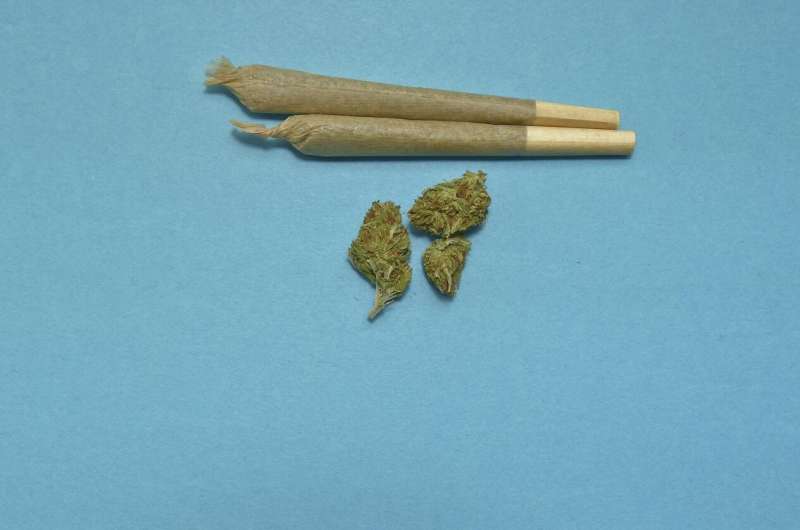This article has been reviewed according to Science X's editorial process and policies. Editors have highlighted the following attributes while ensuring the content's credibility:
fact-checked
peer-reviewed publication
trusted source
proofread
Cannabis exposures in suspected suicide attempts are on the rise

Suspected suicidal cannabis exposures have increased 17% annually, over a period of 12 years, according to a Washington State University-led analysis of U.S. poison center data.
The vast majority of the attempts, more than 92%, involved other substances in addition to cannabis, and the data cannot show a direct causal link between cannabis and suicide attempts. Still, the findings are cause for concern, the researchers said, especially since the increase was more pronounced among children and women during and after the pandemic. They reported their findings in the journal JAMA Network Open.
"This study adds to already ample evidence that cannabis use, particularly by younger people, has significant implications for mental health," said study co-author Tracy Klein, a WSU associate professor of nursing. "We don't have evidence that cannabis alone was the primary driver of a suicide attempt, but we do know that cannabis can worsen certain mental health conditions and increase impulsivity."
The researchers found 18,698 cases of intentional, suspected suicide cannabis exposures reported to U.S. poison centers from 2009 to 2021. Of these cases, 9.6% resulted in death or major outcomes such as permeant disability. The researchers noted that while more of these exposures involved younger people, severe consequences occurred more often among people 65 and older.
U.S. poison centers take calls 24-hours a day from households and healthcare facilities to provide toxicology expertise in suspected poisoning cases. They also investigate the causes, often following up with patients and doctors to determine if patients took substances intentionally or not.
It is well known that accidental cannabis poisonings have been increasing since many states legalized cannabis. Some policies can help prevent these unintentional cases, Klein said, such as packaging guidelines so edible cannabis products are not mistaken for candy.
Intentional cannabis poisonings, on the other hand, have not been well studied, which is one of the reasons the researchers undertook this analysis, and their findings point to the need for more mental health services.
"We have a significant shortage of mental health and primary care providers in the United States," Klein said. "We know that mental health needs not only changed but became even more acute during the COVID-19 emergency. Cannabis is one part of that."
Other research has shown that cannabis use is associated with depression and anxiety in youth and that it may interfere with brain development as well. Recent studies have also suggested a link between suicidal ideation and cannabis use in young people. Given this evidence, it is especially important to limit youth access to cannabis, said Janessa Graves, first author and a WSU nursing associate professor.
"Children and adolescents shouldn't be able to purchase or access cannabis," Graves said. "We also need to educate kids and parents around the risks of cannabis. I think many people just aren't aware the impacts cannabis can have on brain development, and on behavioral and mental health, especially in adolescents and young adults."
More information: JAMA Network Open (2023). DOI: 10.1001/jamanetworkopen.2023.9044 , jamanetwork.com/journals/jaman … etworkopen.2023.9044



















